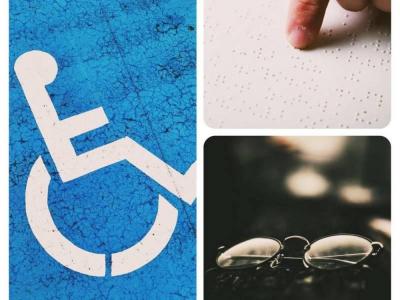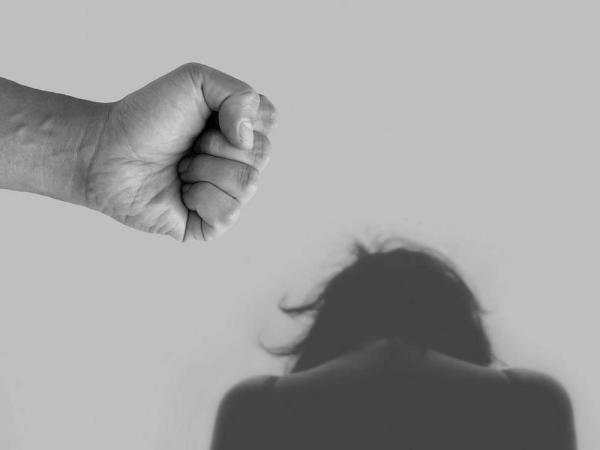Representatives of the Ombudsman at the meeting with the GREVIO delegation on the implementation of the Istanbul Convention
Representatives of the Human Rights Ombudsman of the Republic of Slovenia (Ombudsman) from the Center for Human Rights, Dr. Simona Drenik Bavdek and Jerneja Turin, met today, 23 October 2025, with a delegation of the Council of Europe's Group of Experts on Action against Violence against Women and Domestic Violence (GREVIO). The meeting took place within the framework of the first thematic evaluation of the implementation of the Council of Europe Convention on preventing and combating violence against women and domestic violence (Istanbul Convention), which focuses on strengthening trust by providing support, protection, and justice for victims.
The representatives of the Ombudsman presented the main findings and recommendations of the Ombudsman to the delegation, which stem from the Ombudsman's monitoring of the human rights situation in Slovenia. In doing so, they welcomed the significant progress achieved since the last GREVIO evaluation in 2020 and the implementation of some of the Ombudsman's recommendations regarding the enforcement of the Istanbul Convention:
- Among the key changes is the amendment of criminal provisions on rape and sexual violence, which are now based on the absence of freely given consent.
- An important change is the removal of the requirement that in cases where the perpetrator is a partner or spouse of the victim, criminal proceedings could only be initiated at her proposal, meaning that such criminal acts are now prosecuted ex officio.
- Access to state compensation for victims of violent crimes is no longer tied to citizenship.
- The Resolution on the National Programme for the Prevention of Domestic Violence and Violence Against Women 2024–2029 was also adopted.
According to the Ombudsman, these steps represent an important contribution to the implementation of the standards of the Istanbul Convention and to strengthening the protection of victims in practice.
Despite progress, the Ombudsman's representatives pointed out that gender-based violence in Slovenia remains a serious social problem. Many cases go unreported. They particularly emphasised the need for nationally representative studies, also focusing on violence against children, the elderly, persons with disabilities, individuals with a migrant background, Roma, and other vulnerable groups. The Ombudsman warns that without reliable and comprehensive data on the extent and characteristics of violence it is not possible to develop effective preventive and supportive policies.
The representatives also stressed the importance of preventing violence through early awareness and education. They pointed out the increasingly common online violence among young people, its worrying normalisation, and the lack of response from adults. Among other things, they mentioned the proposal by the Ombudsman and eleven organisations in the field of children's rights for the introduction of a mandatory school subject that would help young people develop life skills, strengthen mental health, and recognise and prevent various forms of violence. They also highlighted the necessity of systematic training for professionals in the judiciary, police, education, and social services to be more sensitive to the needs of victims and to ensure more effective case handling. They warned about the shortage of specialists in the field of child and adolescent clinical psychology and child psychiatry, which leads to excessively long waiting times and prevents timely assistance to victims of violence.
As an example of good practice, they mentioned the operation of the Children's House (Barnahus), but they also pointed out the absence of a special crisis centre for victims of rape and sexual violence, which would provide medical, forensic, and psychological support to victims, a point that GREVIO and the Ombudsman had also highlighted during the first review of the implementation of the convention in Slovenia.
The Ombudsman particularly emphasises the importance of repealing the reservations made by the Republic of Slovenia to the Istanbul Convention, as, in the Ombudsman’s opinion, there are no legally justified reasons to limit the application of the convention. This would further strengthen Slovenia’s commitment to the full implementation of the convention and the standards of the Council of Europe.
The Ombudsman remains committed to cooperating with GREVIO and other international mechanisms in the joint effort for a society free of violence against women and domestic violence, based on trust, equality, and effective protection of victims.
The Ombudsman's representatives also informed the GREVIO representatives that the Ombudsman has not had a head of the institution for eight months, which may cause reduced confidence in the institution, and that the Ombudsman seeks to extend its mandate for human rights protection to public services as well.
In addition, the Ombudsman prepared a written contribution for GREVIO, in which they presented their observations, recommendations, and proposals for further improving the implementation of the Istanbul Convention in Slovenia.













 Back
Back 






